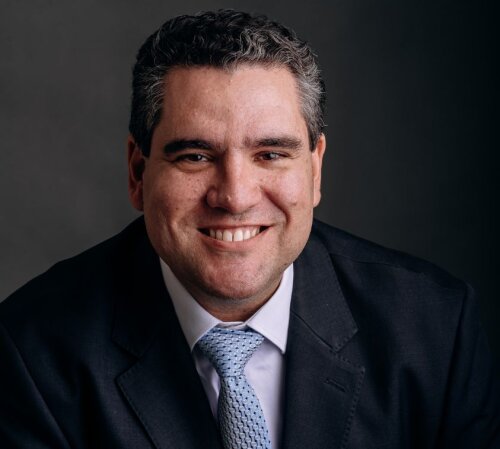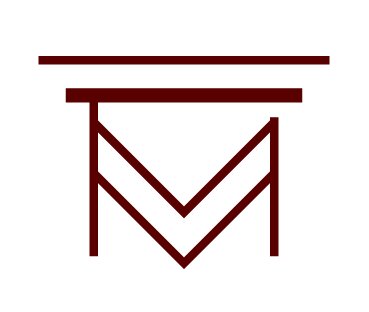Best Child Abuse Lawyers in Praia Grande
Share your needs with us, get contacted by law firms.
Free. Takes 2 min.
Free Guide to Hiring a Family Lawyer
List of the best lawyers in Praia Grande, Brazil
About Child Abuse Law in Praia Grande, Brazil
Child abuse is a serious and sensitive issue in Praia Grande, Brazil, and is treated with utmost importance by the authorities. The term encompasses physical, emotional, sexual abuse, and neglect involving minors. The city of Praia Grande adheres to federal Brazilian laws regarding child protection while also enforcing its own municipal guidelines and programs aimed at safeguarding children's rights and welfare. The government and local organizations work closely to ensure reports of abuse are taken seriously, investigated promptly, and that support is provided for children and families affected by abuse.
Why You May Need a Lawyer
In situations involving child abuse, legal complexities often arise which make it crucial to seek professional legal assistance. You may need a lawyer if:
- You are a victim or the legal guardian of a child who has suffered abuse and wish to initiate legal action or seek protective measures.
- You are falsely accused of child abuse and need a defense to prove your innocence.
- You are involved in custody disputes where child abuse allegations are made.
- You need to understand your rights and obligations regarding child protection laws.
- You require guidance in navigating police investigations or social service interventions.
- You seek compensation or support for damages suffered due to proven abuse.
A qualified lawyer can help you by interpreting local laws, guiding you through the legal process, and representing your interests in court or negotiations.
Local Laws Overview
Praia Grande follows Brazilian national laws, prominently the Statute of the Child and Adolescent (Estatuto da Criança e do Adolescente - ECA), which defines children and adolescents' rights and details protective and punitive measures against abuse. Key aspects of local and federal child abuse laws include:
- Mandatory reporting: Suspected child abuse cases must be reported to relevant authorities including the police or the Guardianship Council (Conselho Tutelar).
- Criminal Sanctions: Offenders risk imprisonment and substantial fines if convicted under the Penal Code and ECA.
- Protective Measures: Authorities can impose restraining orders, remove children from abusive environments, and mandate counseling or rehabilitation for victims and offenders.
- Confidentiality: Victims' identities are protected throughout investigations and judicial procedures.
- Custody and Visitation: Courts prioritize child safety and well-being, which can affect custody and visitation rights if abuse is proven or suspected.
The municipal government often works with state and federal programs to provide further support and resources for child victims.
Frequently Asked Questions
What actions are considered child abuse in Praia Grande?
Child abuse includes physical violence, sexual exploitation, psychological harm, neglect, and abandonment. Brazilian laws define abuse broadly to include any act or omission that harms a child's physical or emotional development.
Who do I report child abuse to in Praia Grande?
You can report child abuse cases to the Guardianship Council (Conselho Tutelar), the local police, or through the national hotline known as Disque 100. Hospitals, schools, and other public services also have reporting protocols.
Is it mandatory to report suspected child abuse?
Yes, any person who suspects or knows of child abuse is legally obligated to report it. Professionals such as teachers and healthcare workers have stricter mandatory reporting requirements.
What protections are offered to child abuse victims?
Laws provide for immediate removal from abusive environments, psychological and social support, legal assistance, and confidentiality for victims and their families.
What happens after a report of child abuse is made?
Authorities will investigate, which may include interviews, home visits, and medical examinations. The child may be placed in a safe environment while the investigation proceeds. Legal proceedings may follow based on the findings.
Can a parent accused of abuse lose custody?
Yes, courts can suspend or terminate custody if the parent is found guilty of abuse or if the child's safety is at risk. Custody can be reviewed and modified based on investigation outcomes.
What legal penalties can abusers face?
Penalties range from fines and restraining orders to prison sentences, depending on the severity of the abuse and whether it is a repeat offense.
Are false accusations of child abuse punished?
Yes, knowingly making false accusations can result in criminal charges such as slander, defamation, or false reporting, with penalties including fines and imprisonment.
Can I remain anonymous when reporting child abuse?
Yes, anonymity can be maintained when making a report, especially through certain hotlines and agencies. The confidentiality of the victim is strictly protected.
How is evidence collected in abuse cases?
Evidence may include medical reports, witness statements, psychological evaluations, photographs, and documentation of injuries or neglect. Legal professionals and authorities manage evidence collection to ensure it is admissible in court.
Additional Resources
If you need assistance or information about child abuse in Praia Grande, the following resources can help:
- Conselho Tutelar (Guardianship Council) - The primary local body handling child protection and investigations.
- Delegacia de Polícia Civil - The local Civil Police station can be contacted to report crimes.
- Disque 100 (Dial 100) - The national child abuse reporting hotline, operating 24 hours a day.
- Public Defender’s Office - Provides free legal assistance for those unable to afford private representation.
- Centers for Social Assistance (CRAS/CREAS) - Municipal centers offering social services and support for families and victims.
- Ministry of Women, Family and Human Rights - Federal resources and support programs for child protection.
Next Steps
If you or someone you know needs legal help in a child abuse situation in Praia Grande, act promptly to ensure protection and justice. Here are the recommended steps:
- If there is immediate danger, contact the police or the Guardianship Council right away.
- Gather and preserve any possible evidence such as medical records, photographs, and written communications.
- Reach out to one of the listed resources for support and guidance.
- Consult a qualified child abuse lawyer who understands local laws and can advocate for your interests.
- Follow professional advice and participate fully in all legal and investigative processes to protect the affected child’s rights and welfare.
Taking early and informed action is critical in child abuse cases. Do not hesitate to seek help and legal guidance to ensure the best outcome for the child involved.
Lawzana helps you find the best lawyers and law firms in Praia Grande through a curated and pre-screened list of qualified legal professionals. Our platform offers rankings and detailed profiles of attorneys and law firms, allowing you to compare based on practice areas, including Child Abuse, experience, and client feedback.
Each profile includes a description of the firm's areas of practice, client reviews, team members and partners, year of establishment, spoken languages, office locations, contact information, social media presence, and any published articles or resources. Most firms on our platform speak English and are experienced in both local and international legal matters.
Get a quote from top-rated law firms in Praia Grande, Brazil — quickly, securely, and without unnecessary hassle.
Disclaimer:
The information provided on this page is for general informational purposes only and does not constitute legal advice. While we strive to ensure the accuracy and relevance of the content, legal information may change over time, and interpretations of the law can vary. You should always consult with a qualified legal professional for advice specific to your situation.
We disclaim all liability for actions taken or not taken based on the content of this page. If you believe any information is incorrect or outdated, please contact us, and we will review and update it where appropriate.










